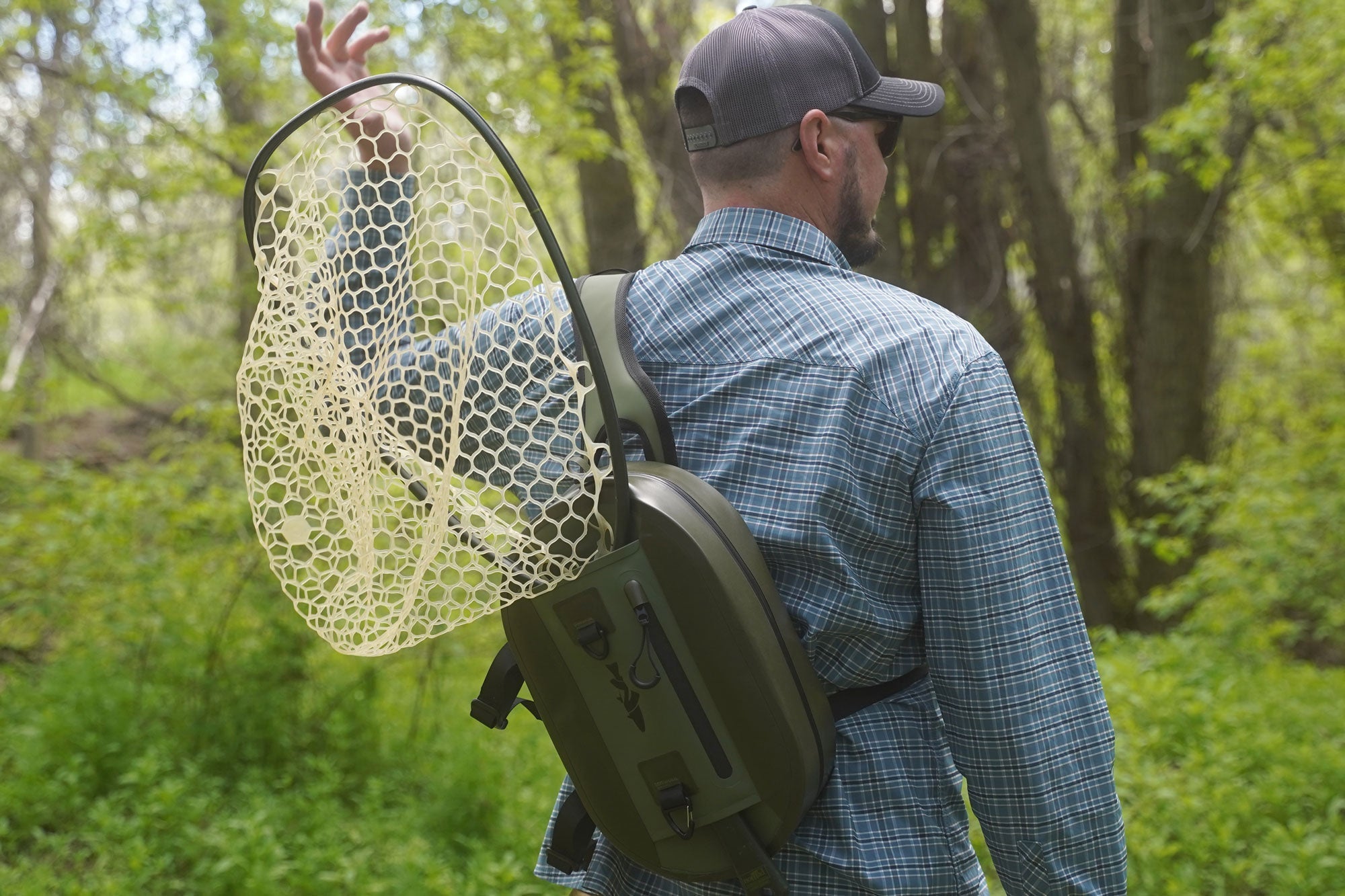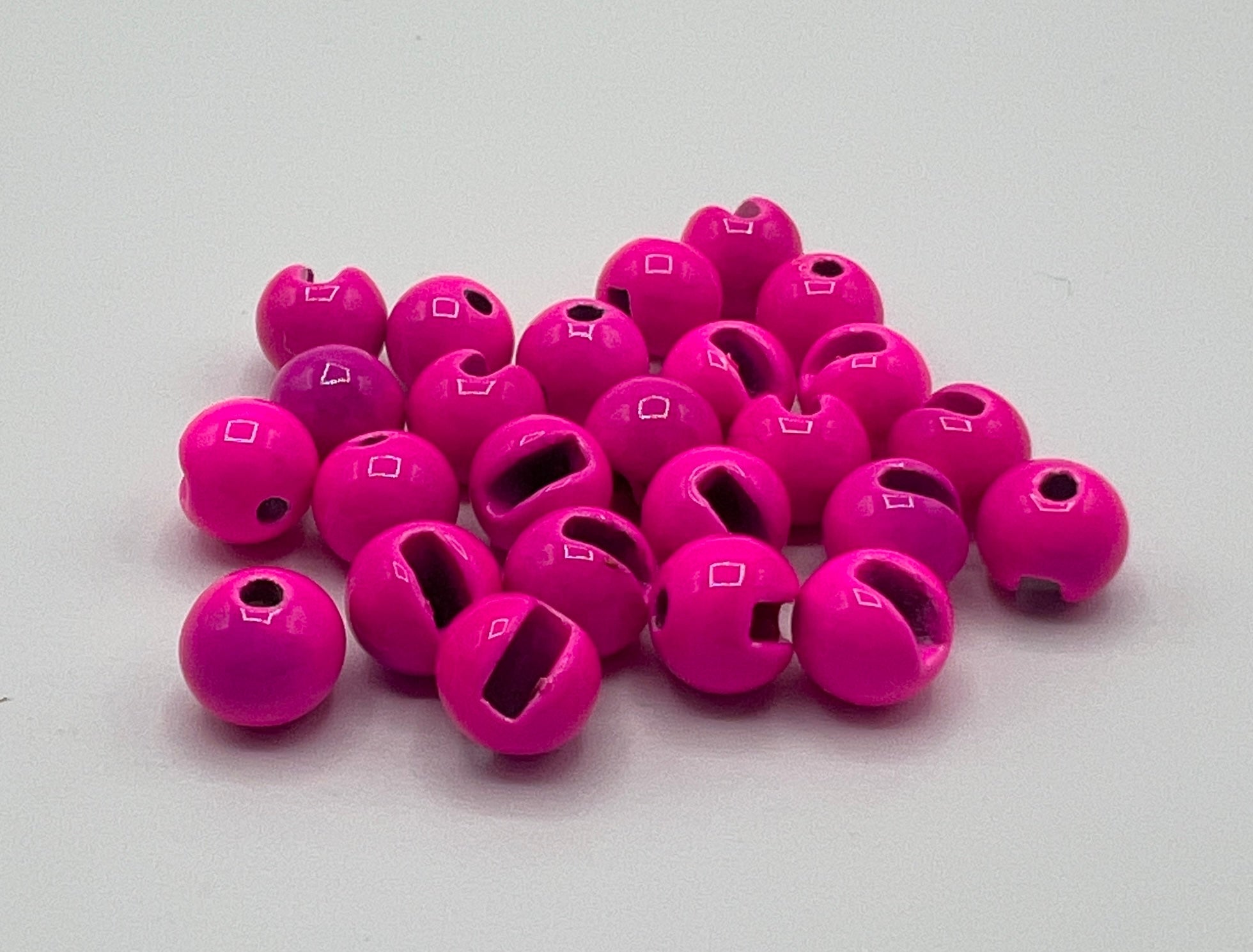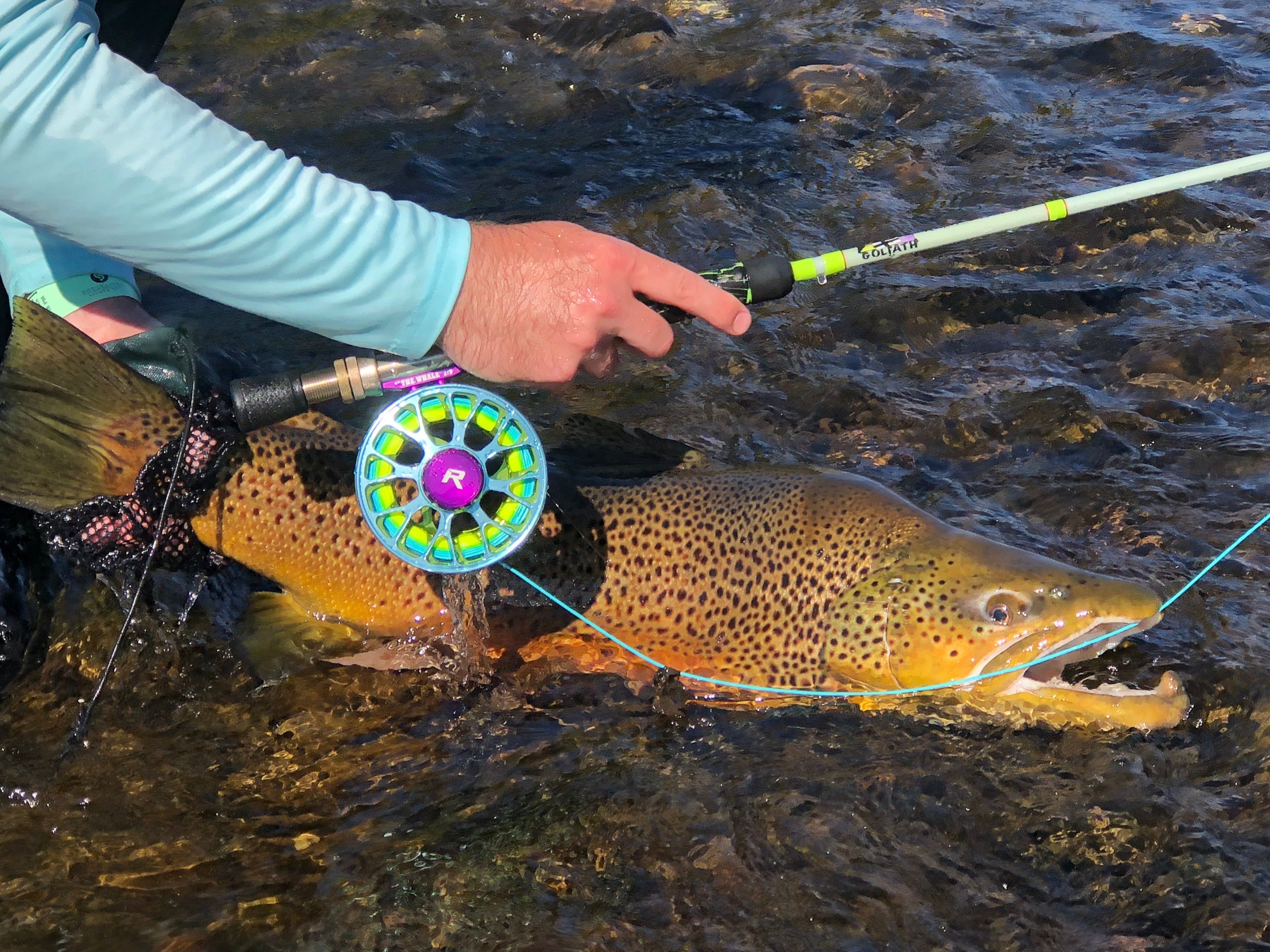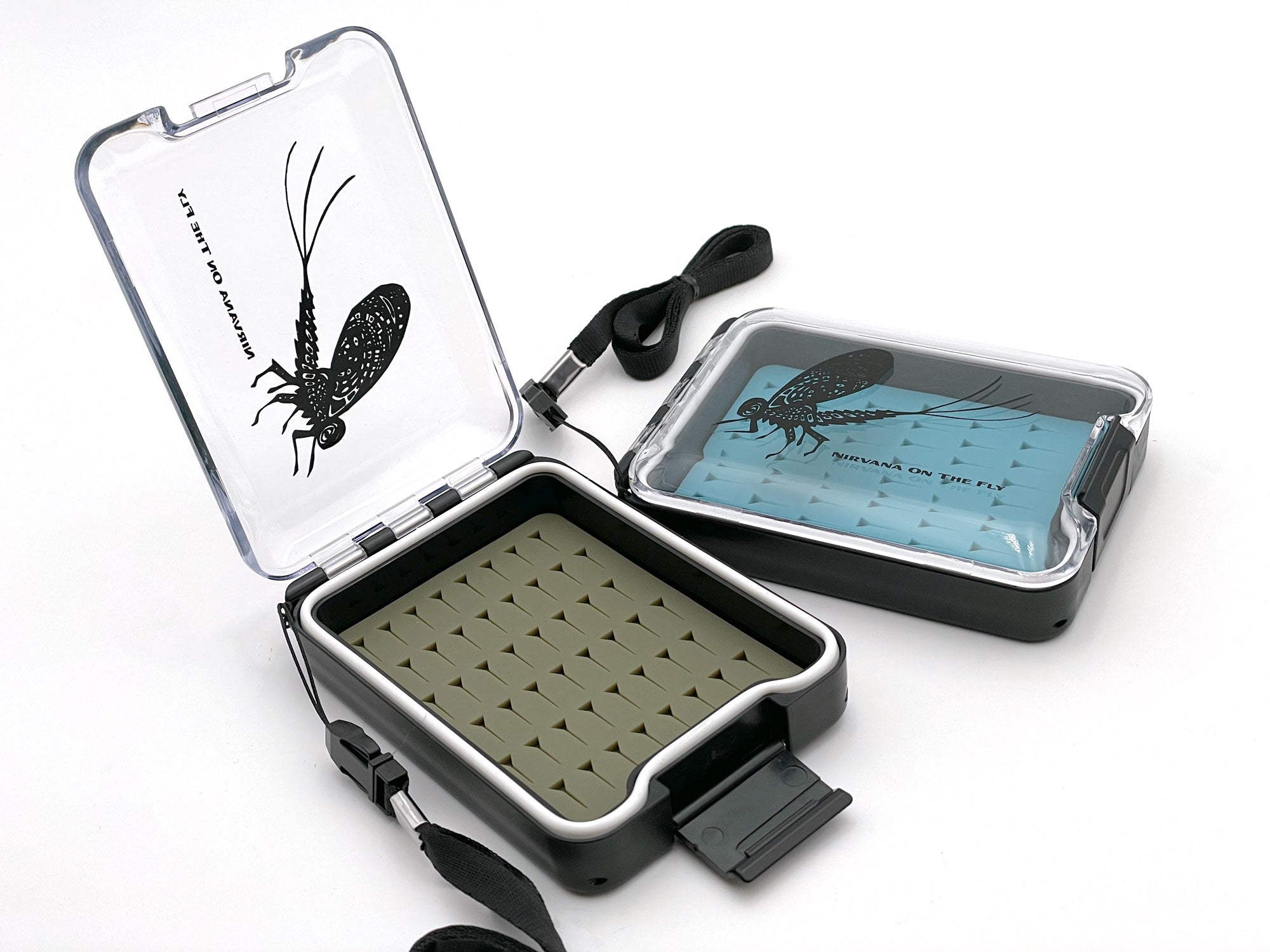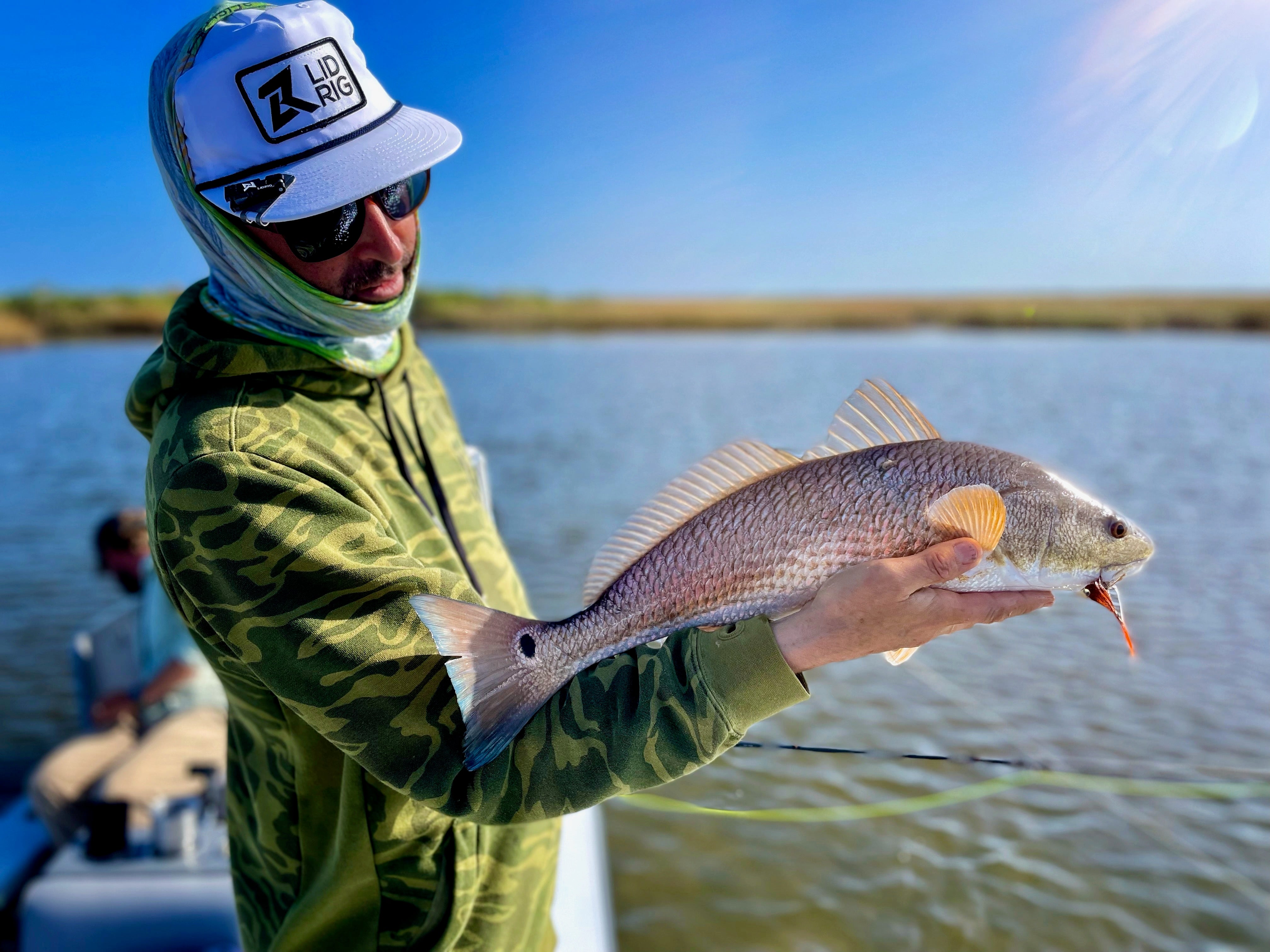The Competition Edge: Why Czech Nymphing Wins Championships
Czech nymphing represents one of the most refined and effective subsurface techniques in modern fly fishing, developed by Czech anglers who dominated international fly fishing competitions for decades. This method combines the precision of direct contact with specialized equipment and presentations that detect takes other methods miss entirely.
Born from the necessity to catch fish consistently under intense competitive pressure, Czech nymphing has proven itself as one of the most reliable techniques for challenging conditions. Master this approach, and you'll possess skills that dramatically improve your success in any nymphing situation.
WATCH: Czech nymphing fundamentals and competition techniques
Understanding Czech Nymphing Principles
The Competition Foundation
Direct Contact Philosophy:
- Physical Connection: Maintain direct contact with flies through rod and line
- Immediate Detection: Feel takes instantly without delay
- Precise Control: Exact depth and speed management
- Maximum Sensitivity: Detect the subtlest fish movements
- Consistent Success: Reliable technique for all conditions
Why Czech Methods Excel:
- Competition Proven: Developed under intense competitive pressure
- Scientific Approach: Refined through systematic testing and development
- Versatile Application: Works in all water types and conditions
- Skill Transferable: Enhances all other nymphing techniques
- Reliable Results: Consistent success once properly mastered
Key Differences from Other Methods
Versus Traditional Indicator Fishing:
- No Indicators: Rely entirely on feel and visual line cues
- Direct Contact: Immediate connection between angler and fly
- Higher Sensitivity: Detect takes indicators would miss
- Better Control: Precise depth and speed management
- Faster Response: Instant hook setting capability
Versus Euro Nymphing:
- Specialized Technique: More specific method than general Euro nymphing
- Competition Focus: Developed specifically for competition success
- Traditional Patterns: Often uses traditional Czech patterns
- Specific Equipment: Purpose-built Czech nymphing gear
- Refined Presentations: Highly refined presentation methods
Essential Czech Nymphing Equipment
Specialized Rod Requirements
Competition Rod Characteristics:
- Length: 9'6" to 10'6" for optimal line control
- Action: Progressive action with sensitive tip
- Weight: 2-4 weight for most applications
- Quality: High-modulus graphite for maximum sensitivity
- Balance: Perfectly balanced for extended use
Czech-Specific Features:
- Thin Tip: Ultra-sensitive tip for detecting subtle takes
- Progressive Power: Gradual power increase from tip to butt
- Comfortable Grip: Extended grip for two-handed techniques
- Guide Quality: High-quality guides for smooth line flow
- Durability: Built to withstand competition use
Line and Leader Systems
Specialized Line Selection:
- Thin Diameter: 0.010-0.012 inch for sensitivity
- Low Stretch: Minimal stretch for direct feel transmission
- Visibility: Bright colors for visual tracking
- Quality: Premium materials for consistent performance
- Memory: Low memory for easy handling
Czech Leader Construction:
- Long Leaders: 15-20 feet for most applications
- Gradual Taper: Smooth energy transfer from line to tippet
- Colored Sections: Visual indicators for depth and take detection
- Quality Materials: High-grade fluorocarbon and mono
- Reliable Connections: Proven knots for leader construction
Weighted Fly Selection
Traditional Czech Patterns:
- Czech Nymph: Classic pattern with gold bead
- Woven Hare's Ear: Traditional Czech construction
- Pheasant Tail Czech: Czech version of classic pattern
- Green Caddis: Czech caddis larva imitation
- Czech Mate: Modern Czech competition pattern
Weight and Size Considerations:
- Heavy Patterns: Tungsten beads for quick sinking
- Size Range: #10-16 for most Czech applications
- Multiple Weights: Various weights for different depths
- Natural Colors: Traditional browns, olives, and golds
- Durable Construction: Patterns that withstand multiple fish
Fundamental Czech Techniques
Basic Czech Presentation
The Czech Cast:
- Short Cast: Typically 20-30 feet maximum
- High Rod: Maintain high rod position throughout drift
- Immediate Contact: Establish contact with flies instantly
- Controlled Entry: Flies enter water at proper angle
- Quick Setup: Rapid preparation for drift
Drift Management:
- Leading the Flies: Keep rod tip ahead of flies
- Depth Control: Adjust rod height for proper depth
- Speed Matching: Match fly speed to current exactly
- Bottom Contact: Feel flies touching bottom regularly
- Natural Movement: Allow natural fly movement with current
Advanced Contact Methods
The Induced Take:
- Subtle Lift: Gentle upward rod movement
- Trigger Response: Stimulate fish to take fly
- Timing: Perfect timing based on fish behavior
- Natural Movement: Mimic natural insect movement
- Strike Readiness: Be ready for immediate response
Current Reading Through Rod:
- Feel Current: Sense current speed through rod tip
- Depth Assessment: Feel exact depth of flies
- Structure Contact: Detect bottom composition and obstacles
- Flow Changes: Feel changes in current speed and direction
- Fish Movement: Detect fish movement near flies
Strike Detection Mastery
Physical Strike Detection:
- Rod Tip Feel: Detect takes through rod tip vibration
- Line Movement: Watch for line movement changes
- Weight Change: Feel changes in fly weight
- Direction Change: Detect changes in fly movement direction
- Pause: Feel flies stopping or hesitating
Hook Setting Technique:
- Gentle Response: Use controlled, gentle hook sets
- Rod Angle: Maintain proper rod angle during set
- Follow Through: Continue pressure after initial set
- Timing: Set hook immediately upon feeling take
- Consistency: Develop consistent hook-setting technique
WATCH: Advanced Czech nymphing strike detection and hook setting
Advanced Czech Strategies
Competition Techniques
Systematic Water Coverage:
- Grid System: Fish water in systematic patterns
- Depth Zones: Fish various depths methodically
- Speed Variations: Try different retrieve speeds
- Pattern Changes: Switch flies based on results
- Time Management: Efficient use of fishing time
Multi-Fly Rigs:
- Three-Fly Systems: Traditional Czech three-fly setup
- Weight Distribution: Heaviest fly at point, lighter droppers
- Pattern Variety: Different patterns to test fish preferences
- Spacing: Proper spacing between flies
- Tangle Prevention: Techniques to avoid tangles
Water Type Specialization
Pool Fishing:
- Deep Water: Target deepest parts of pools
- Current Edges: Fish along current seams
- Structure: Work around logs, rocks, and undercuts
- Multiple Depths: Try various depths in same area
- Patience: Thorough coverage of productive areas
Run and Riffle Fishing:
- Current Breaks: Target areas of reduced current
- Depth Pockets: Find deeper spots in fast water
- Bottom Following: Keep flies near bottom throughout drift
- Structure Navigation: Work flies around obstacles
- Quick Coverage: Efficiently cover extensive water
Seasonal Adaptations
Spring High Water:
- Heavy Flies: Maximum weight for deep, fast water
- Deep Focus: Target deepest available water
- Structure: Fish near current breaks and eddies
- Safety: Extra caution in dangerous conditions
- Persistence: Continue fishing despite tough conditions
Summer Low Water:
- Stealth: Extra care to avoid spooking fish
- Light Tippet: Use finer tippets for spooky fish
- Natural Patterns: Realistic patterns for clear water
- Depth Precision: Target exact depths where fish hold
- Timing: Fish during optimal feeding periods
Fall Feeding:
- Aggressive Patterns: Larger flies for feeding fish
- Active Presentations: More movement to trigger strikes
- Structure Focus: Target known feeding areas
- Weather Windows: Take advantage of stable conditions
- Extended Sessions: Fish longer during active periods
Czech Fly Patterns and Selection
Traditional Czech Patterns
Classic Czech Nymph:
- Construction: Hare's ear dubbing with gold bead
- Colors: Natural browns and golds
- Sizes: #10-14 for most applications
- Weight: Tungsten bead for quick sinking
- Effectiveness: Proven pattern for all conditions
Specialized Czech Flies:
- Woven Patterns: Traditional Czech construction methods
- Competition Flies: Patterns developed for competition success
- Regional Variations: Patterns adapted for local conditions
- Modern Adaptations: Contemporary versions of classic patterns
- Seasonal Patterns: Flies designed for specific seasons
Pattern Selection Strategy
Water Depth Matching:
- Shallow Water: Lighter patterns for shallow areas
- Deep Water: Heavy patterns for deep pools
- Current Speed: Match weight to current speed
- Bottom Type: Consider bottom composition
- Conditions: Adapt to water clarity and light
Color Selection:
- Natural Waters: Earth tones and natural colors
- Stained Water: Brighter colors for visibility
- Clear Water: Subtle, realistic colors
- Light Conditions: Adapt colors to lighting
- Seasonal: Match seasonal insect colors
Building Czech Nymphing Skills
Progressive Development
Foundation Skills:
- Equipment Mastery: Learn to use Czech gear effectively
- Basic Contact: Master fundamental contact method
- Strike Detection: Develop sensitivity to takes
- Water Reading: Learn to read water for Czech techniques
- Safety: Develop safety awareness
Advanced Skills:
- Multi-Fly Rigs: Master complex three-fly setups
- Competition Techniques: Learn competition methods
- Advanced Presentations: Master specialized presentations
- Consistency: Achieve reliable success
- Innovation: Develop personal refinements
Practice Methods
Skill Development:
- Regular Practice: Consistent practice schedule
- Varied Waters: Practice in different water types
- Competition: Test skills in competitive settings
- Instruction: Learn from Czech nymphing experts
- Analysis: Study successful and unsuccessful attempts
Competition Preparation:
- Time Pressure: Practice under time constraints
- Systematic Approach: Develop systematic fishing methods
- Equipment Familiarity: Master all equipment thoroughly
- Mental Preparation: Develop focus and concentration
- Strategy: Learn competition strategy and tactics
Troubleshooting Common Issues
Sensitivity Problems
Improving Feel:
- Equipment: Use high-quality, sensitive equipment
- Technique: Perfect contact technique
- Concentration: Maintain complete focus
- Practice: Develop sensitivity through experience
- Analysis: Study why takes are missed
Environmental Factors:
- Wind: Adapt technique for windy conditions
- Current: Account for current effects on sensitivity
- Temperature: Cold weather affects sensitivity
- Equipment: Ensure equipment is functioning properly
- Positioning: Maintain optimal position for feel
Depth Control Issues
Getting Proper Depth:
- Weight: Use adequate weight for conditions
- Technique: Perfect depth control method
- Equipment: Use appropriate rod and line
- Current: Account for current effects on depth
- Timing: Allow adequate time for flies to reach depth
Avoiding Snags:
- Technique: Improve bottom-following technique
- Equipment: Use appropriate tackle for conditions
- Water Reading: Better assess bottom structure
- Weight: Use minimum weight necessary
- Angles: Fish from angles that minimize snagging
WATCH: Czech nymphing troubleshooting and advanced problem solving
</div>
<!-- End YouTube Video Embed -->
The Czech Nymphing Advantage
Czech nymphing provides unmatched sensitivity and control that allows detection of takes other methods miss entirely. The direct connection between angler and fly creates opportunities to catch fish that would never be hooked with traditional techniques.
The systematic approach developed through competition use makes Czech nymphing one of the most reliable techniques for consistent success. The ability to fish efficiently and effectively under pressure translates to better results in all fishing situations.
Most importantly, Czech nymphing develops skills that enhance every aspect of your fishing. The sensitivity, water reading, and fish behavior understanding required for Czech success creates better anglers who can adapt to any technique or condition.
Remember that Czech nymphing represents the refinement of contact methods through decades of competition development. The precision and skill required for mastery make it challenging to learn but incredibly rewarding once mastered.
Ready to master the most refined contact nymphing method? Start with proper Czech equipment, practice the fundamental contact technique, and gradually develop the sensitivity and precision that will dramatically improve your nymphing success.


